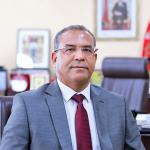Title
Bringing everyone aboard: fostering access for all
Session
Mobility is essential to our way of life – it enables us to get to work, socialise, and access essential services. Providing easy access to mobility is crucial for establishing a more robust and equitable economy. An inclusive mobility system is one that ensures access for lower-density communities, people of all socioeconomic backgrounds, ages and genders, as well as people with disabilities. Policymakers need to understand the role of access in the future of mobility, the challenges faced by different people in various contexts, and the opportunities to work across sectors to achieve an inclusive mobility system.
The pandemic has highlighted inequalities in access within our communities, which can be addressed by prioritising mobility. Investment in walking, cycling and public transport has lagged behind investment in private motorised modes in most countries, and urban transportation systems have typically focused on the commute patterns of able-bodied people with standard work hours. The result of this focus is increased journey times for low-income communities, people who live in low-density communities or the peripheries of urban areas, and primary caregivers of children and the elderly. These challenges are magnified for people with disabilities and people at the intersection of these identities. For people with disabilities, the lack of publically available information needed to complete their journeys adds another layer of complexity to accessing services and opportunities.
The hurdles for providing inclusive mobility vary by context, and can only be addressed with a collaborative and hyper-local approach. This requires understanding why transportation systems have traditionally excluded certain groups, and developing participatory planning frameworks that promote partnership with stakeholders that are typically underrepresented. Better participation can only be achieved if the means for participation are also accessible and stakeholders are given a voice in the design and decision-making processes. The gaps in access and inclusion present in urban areas can be worse in rural and peri-urban areas, which tend to be lower density, and in many parts of the world, lower income. Specifically, the dual challenges of affordability and availability of services can further reduce mobility for people in those areas. For shared and sustainable modes to become an option in such places, they must be easily understandable, flexible, and reliable. This is particularly important for people with disabilities, who face additional barriers in terms of the information available regarding accessibility, and in the availability of alternative modes to complete their trips. As the future of mobility becomes more multimodal, we must address the gaps in information and data needed to support spontaneous and enjoyable mobility for people with disabilities, as well as the physical barriers in the network.
Policymakers need to work across sectors to reduce these gaps, including with private sector partners. For example, micromobility services can be an opportunity to increase the catchment area of public transport networks. Policymakers can work with such services by providing the regulatory framework to allow them to operate in public spaces. In places where informal modes are common, policymakers can work with these service providers to improve safety and emissions standards and integrate them with formal services to improve access. The funding of mobility should also reflect the needs of users: the vast majority of trips globally are local journeys, which can be completed on active modes. However, these trips are not well-represented in the investment in infrastructure. Sustained investment in active modes revitalises local communities and enables independent movement – for children to walk to schools, and for elderly people to pursue social activities. To be inclusive, accessible and equitable, the future of mobility must be shared, connected and people-centred.




